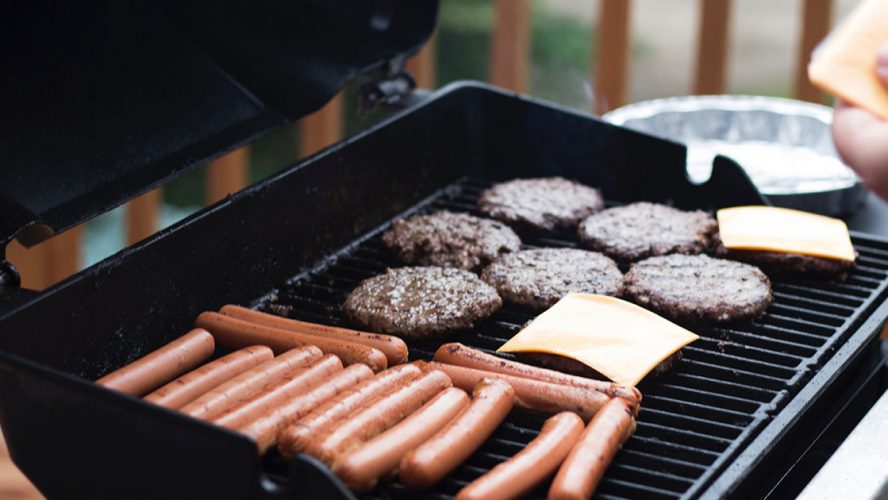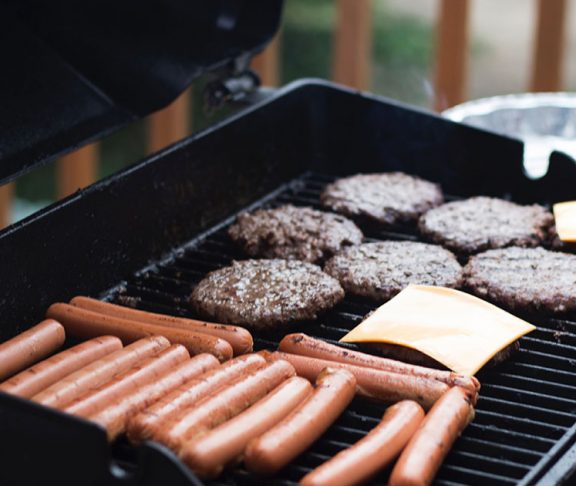Fire safety first
Whether cooking on a gas or charcoal grill, you can eliminate fire risks in the following ways:
- Grilling on a barbecue should be done outside of your home and clear of objects on your deck or porch. Make sure to keep kids and pets away from the grill — they can knock into it and get hurt while they’re playing and running around.
- Clean grates and empty any fat collection trays, which can cause flare-ups.
- For gas grills, make sure that the hose and tank are in good condition. Also, check connections to the tank and burners to make sure they’re tight and secure.
- Consider a chimney starter for charcoal grills. If you use starter fluid, only use charcoal cooking fluid and be sure to keep it away from children and pets.
- Never leave a grill unattended and always have a fire extinguisher ready just in case. Turn your gas grill off when you’re done and close the valve on the tank. Be careful to let the charcoal coals cool completely before disposing them into a metal container.
Keep things tasty with food prep safety
The CDC reports that 1 in 6 people get sick from a foodborne illness each year. Here’s how to avoid problems before, during and after cooking:
- Keep it cold. The USDA advises that food should not be left at room temperature for more than 2 hours (or 1 hour if it’s over 90° F).
- Avoid cross contamination by using separate plates, containers and utensils — like knives, tongs, forks and spatulas — to keep raw meat, cooked meat and vegetables separate.
- An instant-read thermometer is essential. The USDA recommends cooking at 145° F with a 3-minute rest for beef, pork, lamb and veal steaks or chops; 160° F for ground meat (including sausage); 165° F for all poultry (whole or ground).
- Marinades provide lots of flavor, but if they are used on raw meats then they should not be reused on cooked meat unless they have been boiled to remove bacteria.
Kelly A. Nantel, Vice President of Communications and Advocacy, National Safety Council, [email protected]

